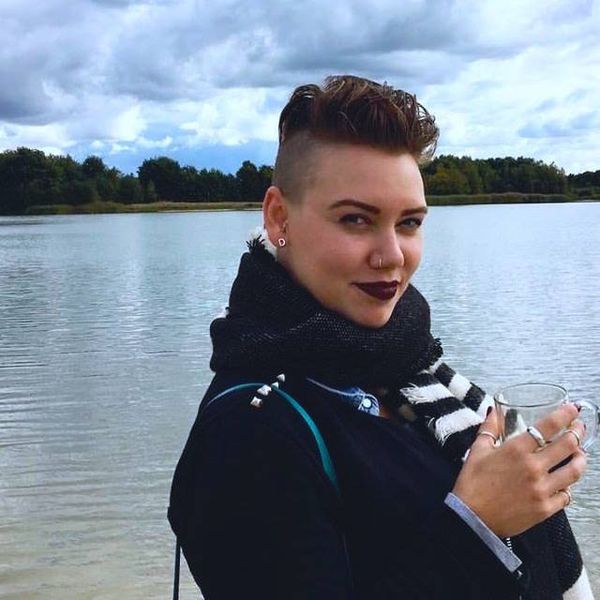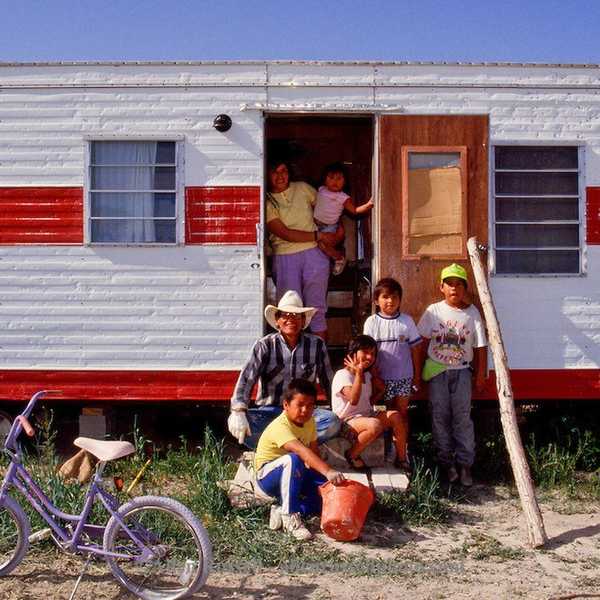It was a day that has been burned forever in my mind. I still feel the insufferable humidity of the tropical heat. I picture the extreme contrasts I encountered that day on the rickety bridge of Da Jabon. A landscape was this unforgettable paradox. The Dominican side was heaven on earth, brimming with vivid shades of green, pink and yellow; banana trees dotted the landscape, as well as joy painted on the faces of the people. In my context, they were considered the third world because of their modest yearly earnings of $1,500, but these people were more generous with next to nothing than the wealthy on Wall Street and Hollywood.
Across the Massacre river, under the bridge lay the nation of Haiti, something often mentioned by humanitarians who plead for our aid. Haiti was a barren and desolate place devoid of the tropical flora and fauna that had so artistically dwelt in the Dominican. The people were skeletons, each and every rib visible, as they bathed their naked flesh in the cool waters of the river. Mothers stood near their children, washing clothes and gathering drinking water from the shallow and murky. No laugh accompanied these activities, a hopelessness and desperation seemed etched in their irises and their demeanor. Even the cattle on the banks of the hill were malnourished and broken.
The Dominicans had told a story about this place, that the squalid waters had once been bright, gushing crimson with blood after a long war between the two countries. The Haitians, in a desperate bid for independence, had cast salt in the soil, causing it forever to be devoid of life and spurring bitterness among them.
Relations between the two groups still teetered on the edge of violence, as stories of Haitian workers murdering their Dominican bosses circulated. And there I stood, a young, naïve teenager from small town America where my neighbors greeted me with warm smiles and doors were often left unlocked. My biggest concern was the next book I wanted to devour, the cute blonde track star I adored and the lack of central air conditioning in my 100-year-old, cinderblock house in July. I had never known the pains of hunger, threadbare clothing, and desperation for the security of shelter or the ominous threat of violence. Until that day, these things were foreign to me, horrors that only happened to other people, in places too far away to concern my little corner of the world.
I thought I had known what I signed up for when agreeing to go to the Dominican Republic on a mission trip with World Partners. I expected to connect with fellow Christians, even if the rest of our team was Southern Baptist, as well as the Christian locals whose church we were assigned to complete. I expected to give up the posh comfort of my life for ten days and return later unaffected. How naïve my thinking was.
That day on the banks of the river, my world expanded and the feeling of insignificance pervaded my emotions. Who was I to lust after more than I needed and to deny the resources entrusted to me to those who were simply born in the wrong hemisphere? Who was I to orient my life and future to pursue money and the accumulation of material goods, to live oblivious to the sufferings of others, whether across the world or next door? In this split second, my life was forever changed. I laid to the ground parts of myself that I hadn't given to God yet.
I let go of my need to control and orchestrate my life and my purpose and simply gave God my open hands. It was there in front of all of my teammates, in front of the soldiers with their AK47’s guarding the Dominican side, in front of the naked children darting under gate on the bridge and yelling in French for money, that the presence of God was undeniably real like never before.
In this moment, I grieved for all of the sufferings that has been silenced or ignored. I grieved for my ignorance, for the blood that had been split on this ground and for the Haitian people and their desperation for hope, a hope that could only be found in the pierced of hands of our savior and Lord, Jesus. They, like I had once had, looked for fulfillment in all of the wrong places. I had trusted in security, material goods, relationships and success to fill my God-shaped hole, while they had turned to witchcraft, violence, and bitterness. It was then my surrender was complete and my purpose was clear. After that day, I returned to my little five-acre farmhouse in the midst of corn fields, transformed.





















